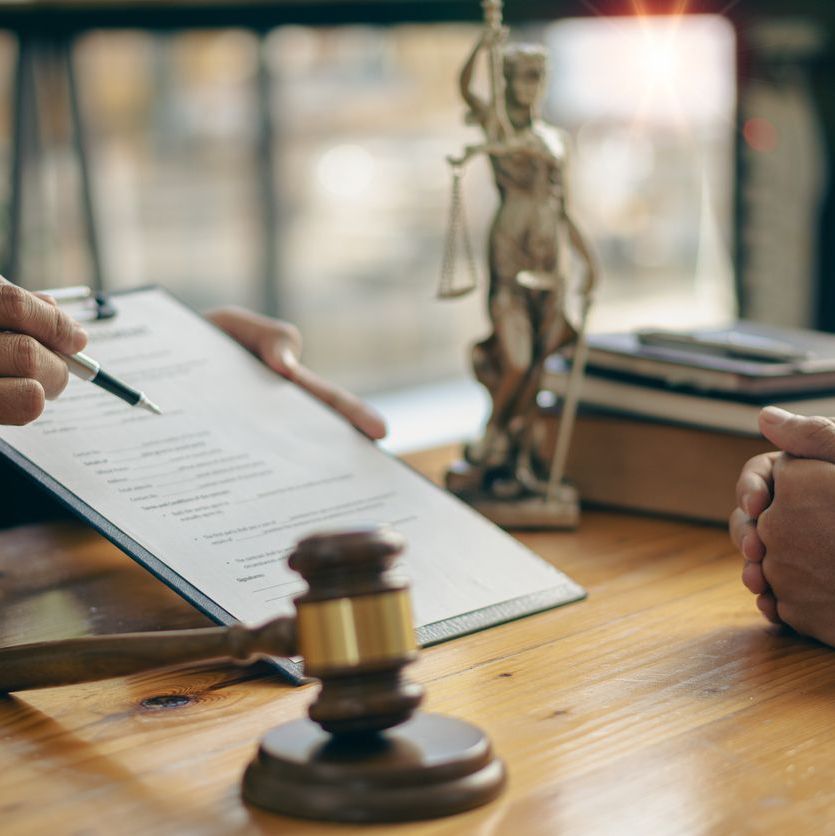Recognizing Habeas Corpus: An Attorney's Guide to Legal Rights
Recognizing Habeas Corpus: An Attorney's Guide to Legal Rights
Blog Article
Understanding the Duty of a Post-Conviction Legal Representative in Looking For Justice After a Criminal Sentence
In the complicated landscape of post-conviction lawful procedures, the duty of a post-conviction attorney is crucial in navigating the path to justice after a criminal sentence - alaska federal habeas corpus. As the quest of justice prolongs beyond the confines of initial proceedings, the role of a post-conviction lawyer arises as a beacon of hope for those seeking to rectify injustices and redeem their civil liberties within the lawful system.
Post-Conviction Attorney's Investigatory Job
Post-conviction lawyers involve in careful investigative job to discover new proof, procedural errors, or misconduct that can possibly result in rescinding a sentence. This investigative stage is important in the post-conviction process as it intends to identify any kind of ignored details or lawful errors that might have impacted the end result of the preliminary test. Post-conviction attorneys delve into instance files, witness testaments, and legal documents with a fine-tooth comb, browsing for any kind of inconsistencies or abnormalities that can be grounds for charm.
Through complete investigation, post-conviction attorneys aim to drop light on possible injustices that might have happened during the original test. They may carry out meetings, speak with experts, and testimonial forensic evidence to develop an engaging case for their clients. By looking at every aspect of the legal process, post-conviction lawyers work tirelessly to reveal any kind of elements that might have affected the verdict. Eventually, their investigatory job plays a pivotal function in the quest of justice and the possible turnaround of wrongful convictions.
Crafting Appeals and Petitions
In the pursuit of justice after a conviction, competent attorneys thoroughly craft allures and applications to existing engaging debates for the reconsideration of lawful choices. Crafting allures and applications calls for a deep understanding of the lawful system, interest to information, and strategic thinking. Post-conviction legal representatives analyze test documents, recognize prospective errors or infractions of legal rights, and develop lawful debates to test the conviction or sentence.
When crafting a charm, lawyers focus on highlighting lawful mistakes that may have influenced the outcome of the instance. They look into situation legislation, statutes, and lawful criteria to support their arguments. Applications, on the other hand, may entail providing brand-new proof that was not available during the test or demonstrating changes in the law that necessitate a review of the sentence.
Furthermore, post-conviction lawyers must stick to stringent procedural regulations and due dates when filing allures and requests. They should offer their disagreements clearly and persuasively to persuade the court to give alleviation to their clients. Via careful crafting of charms and petitions, post-conviction legal representatives aim to safeguard justice for individuals that have been wrongfully founded guilty or unfairly punished.

Pursuing Post-Conviction Alleviation
Seeking relief after a sentence needs a strategic and thorough approach by seasoned attorneys. Post-conviction relief incorporates a series of lawful mechanisms developed to test the validity of a conviction or sentence (wyoming federal habeas corpus lawyers). These opportunities consist of filing motions for a brand-new test, going after appeals, looking for writs of habeas corpus, and offering recently discovered proof. Post-conviction attorneys play an important role in browsing these complicated procedures, ensuring that all lawful choices are explored to fix oppressions that may have taken place throughout the test or sentencing phase.
One typical kind of post-conviction alleviation is submitting an application for post-conviction alleviation, generally based on insurance claims of inefficient help of advise, prosecutorial misconduct, newly discovered evidence, or constitutional offenses. Experienced post-conviction lawyers possess the skills and knowledge necessary to identify practical legal claims, conduct investigations, and present engaging debates to protect alleviation for their clients.
Using Forensic Proof
When testing a sentence or sentence, the critical application of forensic proof can be a powerful device in post-conviction legal i thought about this procedures. Forensic evidence includes a broad range of scientific strategies made use of to check out criminal offenses and develop truths in court. Post-conviction attorneys can leverage forensic evidence to test the credibility of convictions by presenting brand-new clinical findings that were not readily available throughout the original trial.

Engaging in Sentence Modifications
Post-conviction lawyers may explore the possibility of sentence modifications as a lawful method to resolve out of proportion or unjustified sentences passed on in criminal situations. Sentence adjustments include looking for changes to the regards to an accused's sentence after a sentence has actually occurred. These alterations can consist of minimizing the length of a sentence, changing the type of punishment enforced, or checking out alternate sentencing options.
Post-conviction lawyers can seek sentence adjustments with various lawful systems, such as filing activities for sentence reduction, appealing for compassionate launch, or discussing plea deals for lowered sentences. They need to thoroughly review the conditions of the situation, assess the lawful premises for looking for a modification, and existing compelling arguments to the court sustaining the need for a modified sentence.
Taking part in sentence alterations needs a comprehensive understanding of criminal law, punishing standards, and the specific treatments involved in looking for post-conviction relief. Post-conviction legal representatives play a vital role in supporting for fair and simply outcomes by difficult sentences that are unduly harsh or do not line up with the principles of justice.
Conclusion
Finally, the duty of a post-conviction lawyer is critical in seeking justice after a criminal sentence. Via investigative job, crafting appeals and requests, seeking post-conviction relief, utilizing forensic proof, and involving in sentence adjustments, these lawyers play an important duty in promoting for their clients and making sure that their rights are supported within the criminal justice system. Their commitment and expertise are necessary in browsing the complexities of post-conviction proceedings and accomplishing a reasonable end result for individuals facing criminal convictions.
Report this page